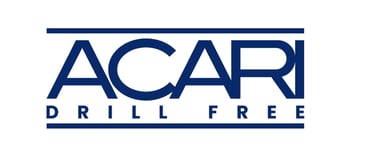~ Created by fleet pros, for fleet pros - Your voice of the Industry ~


3 strategies to boost your retirement
savings (even if you're behind)
By: Greg Hancock
Wealth Management Advisor | Financial Advisor
This article will....
Tell you how you can “catch up” on your savings if your 50 or older.
List ways to save more and make your money work for you.
Explain the advantages of consolidating your retirement accounts.
Have you saved enough for retirement? Are you confident you’re on target to have the
lifestyle you want when you think about life after you stop working. If you’re not sure,
you’re not alone.
The reality is most American workers are behind on their retirement savings, and many
don’t realize it until later in their careers — some with just five to 10 years until they
plan to retire. Only about half of Americans believe they are on track to retire when they
want to, according to a recent MassMutual survey.1
If you’re among those who’ve fallen behind on saving for retirement, it’s not too late.
Here are a few simple strategies you can use to help you catch up, even if you’re close to
retirement. The best part? You can start today.
Strategy #1: If you’re 50 or older, “catch up” on your savings
Your workplace retirement plan offers you some great tax benefits, like the ability to set
aside pre-tax money from your paycheck. However, the IRS sets annual limits on how
much you can contribute. Beginning in 2025, the contribution limit for 401(k), 457(b),
and 401(b) retirement plans is $23,500.
Once you reach age 50, however, you are allowed to contribute even more each year. If
you’re going to be 50 (or older) before the end of 2025, you can save an extra $7,500.
That means you have the opportunity to sock away as much as $31,000 for retirement in
2025 — that’s a significant amount of savings even if you only plan on working a few
more years.
Beginning on January 1, 2025, a new provision under SECURE Act 2.0 also enables
employees ages 60 to 63 who participate in these plans to make higher annual catch-up
contributions of up to $11,250 to a workplace plan.
The annual contribution limit for traditional IRAs and Roth IRAs is $7,000 in 2025,
with an additional catch-up contribution of $1,000 for those who 50 and older.
Strategy #2: Make your money work for you
Although you don’t want to take too much investment risk as you get closer to your
retirement date, now may not be the time to be too conservative either. Even if
retirement is only five to 10 years away, you’ll need to make your money last for 20–30
years. So, you still may need to take some investment risk in order to maximize your
opportunity for higher returns while your money remains invested.
Many people over 50 tend to shy away from stocks, but that can hurt your ability to
make your money work for you. Re-evaluate your current asset allocation — the mix of
investments in your retirement portfolio — to make sure it isn’t too conservative or too
risky to keep you from reaching your retirement goals.
If you don’t feel comfortable making investment decisions, or you just don’t have the
time or inclination to do the research, here’s another option: You could put your savings
into a target date fund (if available in your employer’s retirement plan).
Target date funds are designed to simplify the investment process by providing a
professionally managed investment mix based on your anticipated retirement
date. Target date funds also adjust the investments over time to become more
conservative as your retirement gets closer. Some target date funds follow a “through
retirement” investment philosophy, which means they’ll keep a higher mix of stock
funds in the mix past your retirement date.
Strategy #3: Simplify by consolidating your retirement accounts
Keeping tabs on your finances takes time. It can take even more time if you have
separate retirement accounts in multiple locations — with your former employers, for
example. After all, that means you have to keep track of a pile of different statements,
investment options, tax forms and passwords. Instead of tracking all that, you could
consolidate your retirement accounts into one plan to simplify your financial life.
Consolidating your accounts into your current employer’s retirement plan, for example,
has several advantages. Your employer is required to oversee the management of the
plan and make sure the investment options are prudent investments with reasonable
fees. If you have all your retirement savings in one account, you only have one
investment mix to manage. This will make it easier for you to make sure your
investment selections are working together to grow your account balance.
Keeping your accounts “under one roof” may also help you save money by reducing
investment and account management fees. Being able to see your entire savings and
investment portfolio at a glance can help you plan more effectively for the future.
Finally, when it comes times to withdraw your retirement savings, having all your
money in one account can simplify your retirement income planning too.
Consolidating your accounts takes time and careful consideration, but you might find
that the benefits far outweigh the one-time effort it takes to get it accomplished.
Time is of the essence
When it comes to retirement savings, it’s never too late to save more. Consider putting
aside as much as you can for retirement. If you’re over 50, take advantage of the “catchup”
option. Re-evaluate the investment mix in your retirement portfolio to make sure it
still meets your financial needs. And consider consolidating your retirement accounts to
simplify your financial life.
Start “catching up” today.
Since 1851, MassMutual has been focused on helping people secure their future and
protect the ones they love. That purpose is why we have thousands of financial
professionals to assist you on your journey through insurance, investing, retirement
planning, estate management, and more. You can find a MassMutual professional with
this tool or you can let us know you’d like to talk to one and we’ll have one of our
financial professionals contact you.
Learn more from MassMutual ...
_____________________________________________
1 MassMutual, Fall Consumer Sentiment Survey, Fall 2021.
Investors should consider the impact of transfer fees, the loss of vested benefits, and/or
surrender charges that may be imposed by their current plan when funds are consolidated.
Generally, target retirement date (lifecycle) investment options are designed to be held
beyond the presumed retirement date to offer a continuing investment option for the investor
in retirement. The year in the investment option name refers to the approximate year an
investor in the option would plan to retire and likely would stop making new contributions to
the investment option. However, investors may choose a date other than their presumed
retirement date to be more conservative or aggressive depending on their own risk tolerance.
Target retirement date (lifecycle) investment options are designed for participants who plan to
withdraw the value of their accounts gradually after retirement. Each of these options follows
its own asset allocation path (“glide path”) to progressively reduce its equity exposure and
become more conservative over time. Options may not reach their most conservative
allocation until after their target date. Others may reach their most conservative allocation in
their target date year. Investors should consider their own personal risk tolerance,
circumstances and financial situation. These options should not be selected solely on a single
factor such as age or retirement date. Please consult the prospectus (if applicable) pertaining
to the options to determine if their glide path is consistent with your long-term financial plan.
Target retirement date investment options’ stated asset allocation may be subject to change.
Investments in these options are not guaranteed and you may experience losses, including losses near, at, or after the target date. Additionally, there is no guarantee that the options
will provide adequate income at and through retirement.
The information provided is not written or intended as specific tax or legal advice.
MassMutual, its subsidiaries, employees and representatives are not authorized to give tax or
legal advice. Individuals are encouraged to see advice from their own tax or legal counsel.
Provided by Gregory Hancock, courtesy of Massachusetts Mutual Life Insurance Company
(MassMutual).
©2025 Massachusetts Mutual Life Insurance Company, Springfield, MA 01111-0001
MM202801-311431


Connect with us!
info@trucktalku.com
P: 817-875-3695
© 2025. All rights reserved.
T
We proudly endorse our great business partners!






